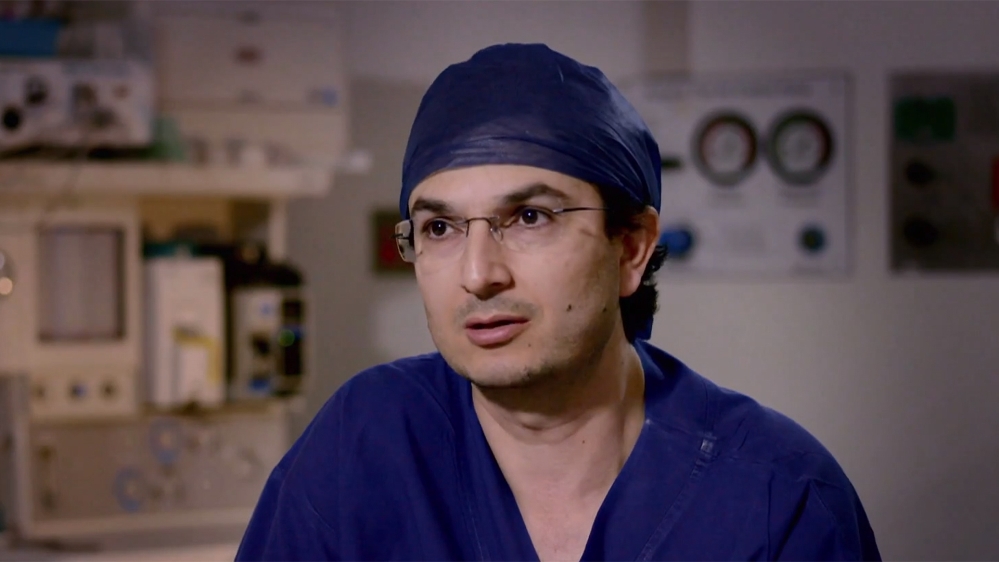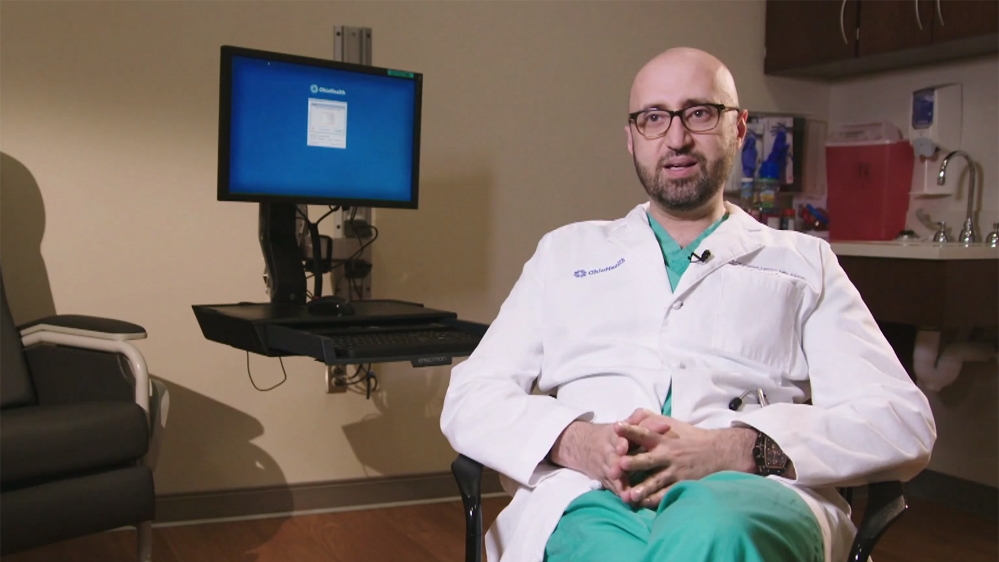
Arabs Abroad: The Surgeons
Meet an Iraqi orthopaedic surgeon and a Jordanian cardiologist who have built successful lives in the West.
Filmmaker: Nasser Farghaly
Over the decades, millions of people from the Arab world have emigrated – some driven by conflict and persecution, others for economic and family reasons.
Keep reading
list of 4 itemsSouth Africa’s Ramaphosa signs health bill weeks before election
Gaza lost much more than a hospital when it lost al-Shifa
With measles on the rise, rebuilding trust in vaccines is a must
They settle in Europe, Australia, the Americas and Africa. But media coverage usually only shows them at the start of their often treacherous journeys, and the stories that get told can sometimes be stereotyped and incomplete.
In the Arabs Abroad series, Al Jazeera World profiles the lives of migrants after their initial journey. We meet people who have built successful lives away from their Arab homelands, while remaining connected to their roots – each in their own way giving something back to the region of their birth.
The Iraqi Orthopaedic Surgeon

Dr Munjed al Muderis is an orthopaedic surgeon originally from Iraq. In 1999, he refused to carry out punitive measures against Iraqi army deserters and instead fled his country for Australia.
“I came to Australia [in 1999] on a fishing boat,” he says. “The boat was about to sink. It was belching smoke and diesel fumes. It was overloaded, with 165 refugees.”
He remembers being placed in a migrant detention centre in Western Australia, where he endured harsh conditions and was even marked with a number, 982 – which was used instead of his name for the 10 months he lived there.
“Those were the worst days of my life,” he says. But, he adds, “if I went back in time, I’d do it all over again. I didn’t have any other choice. I’d go on that boat and come to Australia again.”
His first job in Australia was as a toilet cleaner. Then, after his medical qualifications were formally recognised, he began work as a doctor. Eight years later, he had become a respected surgeon and professor. Al Muderis has since helped pioneer new advances in orthopaedics. He also helps at a clinic in Ramallah in Palestine’s occupied West Bank where he shares his expertise with local medical teams.
He divides his life into three main areas: giving support to refugees who arrive in Australia, inventing new surgical devices, and treating people who are in greatest need of his expertise.
“I chose this specialty because I lived in a country that has gone through several wars. Iraq has always been living a war,” he says.
“Many people have had limbs amputated following landmine explosions. I saw how these people can lose their jobs and become inactive in society after losing a limb. So I tried to find ways of putting them back on the road and to provide for their families,” says al Muderis.
The Jordanian Cardiologist

Dr Mohammad Hajjiri is a Jordanian who has settled in the United States. Today, he is a cardiologist in Cleveland, Ohio, but he left home when he was still a student back in 2005.
“When I first arrived in 2005, I found it hard to adapt to this society … America was still recovering from the 9/11 events. Many were suspicious about a man named Mohammad,” Hajjiri says.
But he adds that he had supportive colleagues and supervisors who helped him navigate the initial challenges.
Hajjiri is now renowned in his field, specialising in installing and removing delicate wiring used to control devices correcting irregular heartbeats in patients. He also takes part in pioneering stem cell research aimed at reducing the incidence of sudden heart attack deaths.
He says the focus of his life is three main things: his work as a doctor, his research into stem cells and medical devices, and imparting his knowledge through teaching.
Since 2014, Hajjiri has also been involved in an initiative to bring Jordanian trainee doctors to the US, allowing them to hone their medical skills and to share the technology he uses to monitor the heart’s electrical systems.
“I think one of our greatest achievements as teachers is to have a student that becomes better than us – to give that student the tools to learn. Mohammad has been one of those great students,” says Dr Charles Love, Hajjiri’s former professor.
“He took the skills that I taught him, learned from his other mentors. He has gone out into practice and has done very well with these procedures … [To] see him develop into an incredible young physician, to treat patients and save lives, that’s the greatest joy I can have as a professor.”